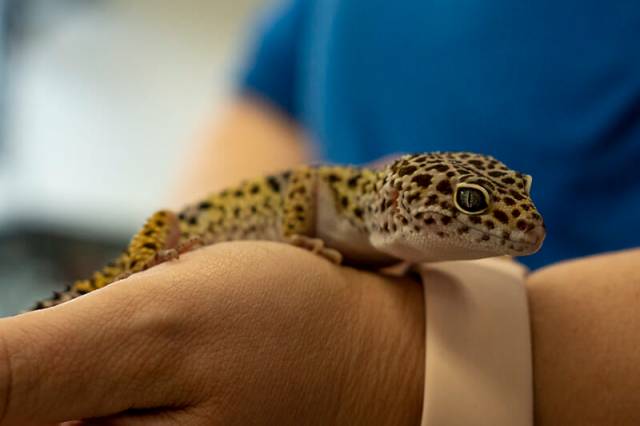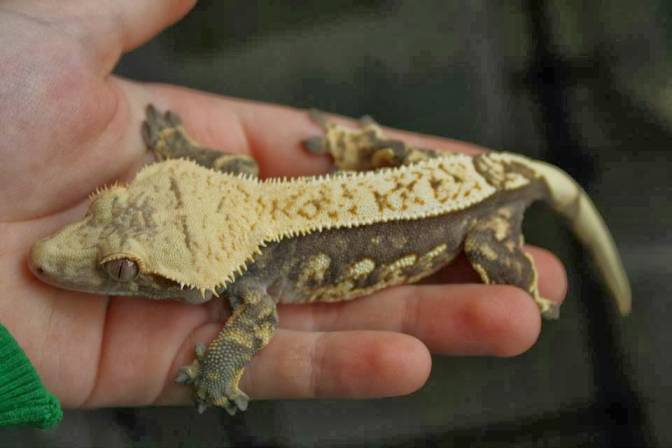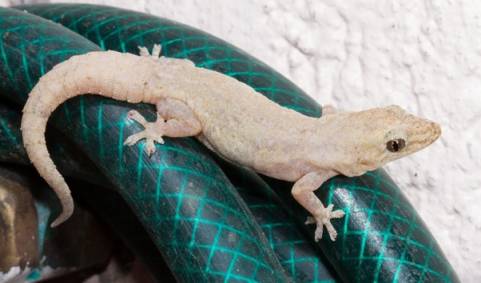If you’re a first-time pet parent to a leopard gecko, you may be surprised to learn your lizard can make several different types of sounds! Maybe you’ve already heard your lizard make sounds, and you’re wondering what they mean.
Connect with a verified veterinarian in minutes. Licensed vets are available 24/7 to answer your questions. No need to worry about your furry family member.
As a pet parent, it’s important to know all about your gecko. This includes how to care for him, along with understanding his behaviors. This type of information can help you be an even better pet parent for your reptile.
To help you out, we’ve put together some information on the different types of sounds leopard geckos make. We’ve also included details on what those sounds mean!
What Noises and Sounds Do Leopard Geckos Make?
You’ll be surprised to learn that leopard geckos can make several different types of sounds. They can scream (yes—really!), chirp, click, squeak, and even bark. Let’s see what each of these sounds means!
Screaming
It’s surprising to learn that lizards can scream. It just doesn’t seem like it would be possible or even probable. However, it’s very true that leopard geckos can scream. You’ll know it if your lizard screams, as this is a pretty loud sound.
When your lizard screams, it means he’s scared and/or is being defensive. He’s definitely feeling threatened in some way. The screaming is a way to scare off a predator or another threat. Some geckos even act as if they will attack. Another reason geckos scream as if they’re very stressed. Keep in mind these are natural behaviors for leopard geckos, and don’t take it personally.
Some experts say screaming is most often seen in young or baby geckos. This is because they’re not familiar with you or their new surroundings. So, they go into defensive mode. However, as geckos become older and are more familiar with you, they will stop screaming.
If this happens to you, then be sure to stop whatever you’re doing. If you’re holding the gecko, carefully and slowly put him back in his habitat and leave him alone.

Review symptoms, medications & behavior to keep your pets healthy with a Vet Online in just minutes.
Ask a Vet Live NowChirping & Squeaking Sounds
Leopard geckos can also squeak and chirp! These are more common than screaming; however, it may still be an indication that your lizard is unhappy about something. This may mean he doesn’t want to be handled right then or that he’s been handled roughly.
Chirping may also happen if your lizard is hungry! Though it may also indicate the lizard is startled or surprised.
Leopard geckos also squeak when they’re exploring new territory. They may even squeak out of curiosity.
Clicking Noises in Leopard Geckos
Here’s another interesting sound that leopard geckos make—clicking noises! It’s thought geckos make this sound when they’re afraid or feel threatened. Again, this could be due to rough handling.
Another issue could be when they’re meeting a new leopard gecko for the first time. This can definitely be stressful or make a lizard feel threatened.
Your gecko could even make clicking sounds if you’ve made changes to his habitat. Clicking means he’s not comfortable and not feeling secure. You may want to consider putting his home back the way it was, so he can feel better.
If your lizard starts clicking when you put a hand in his habitat, then it probably means the gecko doesn’t want attention just then. He could be afraid, or maybe your hand smells different for some reason. Anything foreign to him could be seen as a possible threat.
So, if your gecko clicks at you, be sure to respect his needs. Consider this a sign he’s not comfortable somehow and leave him alone. If you’re handling him, place your leopard gecko slowly and carefully back into his habitat. Then be sure to give him some space.
Barking Sounds
Yes, geckos do really bark; however, it may sound more like a barking chirp rather than a dog’s bark. You’ll recognize this sound by the hoarse tone. This isn’t a common sound, but it may indicate your lizard isn’t feeling safe and feels threatened in some way.
Common Threats That Make a Leopard Gecko Sound Off
Sometimes it’s difficult to know or understand exactly what is causing your gecko to sound off. However, there are some common causes that make these lizards scream and more.
1). Something’s coming after them: when a gecko sees something that’s coming after him, this can be scary. Put yourself in his place! What if you see a giant hand coming to grab you? You’d probably scream, too! This happens most often in lizards that are new to you and your home. It’s usually best to give your gecko about 3-4 weeks to become familiar with his new surroundings before trying to handle him.
2). Reaching from the top: here’s another common issue with leopard geckos (and other lizards). In the wild, many raptors (carnivorous birds) try to prey on lizards. The birds typically attack from above. So, when a lizard sees something hovering above them or trying to grab them, the little guys may scream, squeak, click, etc. They believe your hand is a predator. For this reason, many reptile experts advise having a habitat that opens from the front rather than using a tank. This is a great way to help your lizard see you before you try to handle him. He won’t believe your hand is a predator and can come to you or not, as he chooses. He’ll feel much more comfortable with a front-opening habitat.
3). Aggressive prey: some live insects that are put into the leopard gecko’s habitat can be aggressive. Crickets are one of the worst and may try to attack your gecko by biting him. They may also jump on the gecko. All of this can really stress your lizard. This may cause him to squeak or making other sounds because he’s tired or even scared of this attacking insect. For this reason, it’s best not to leave crickets in the habitat with your gecko too long. If he doesn’t eat them, be sure to take the crickets out for later feeding.
So, there you have it! These are some of the most common sounds leopard geckos make. It’s great that your lizard has a way of letting you know how he feels! Be sure to respect his needs and if he’s feeling scared, then try to figure out what the problem is. This way, your gecko will gain trust in you and won’t mind being handled and spending time with you!
Connect with a verified veterinarian in minutes. Licensed vets are available 24/7 to answer your questions. No need to worry about your furry family member.

Kim
Kim is a talented author, who loves animals especially dogs. She engaged in writing books and articles relating to animals a decade ago. Kim resides in Chicago with her husband and son. The family is the proud owner of a dog and a parrot (Jack and Lily). Kim wanted more than these two pets, but her husband put his foot down... She often visits elementary schools to talk to the kids about what she learned about pets and how they could learn from them.
Review symptoms, medications & behavior to keep your pets healthy with a Vet Online in just minutes.
Ask a Vet Live Now



